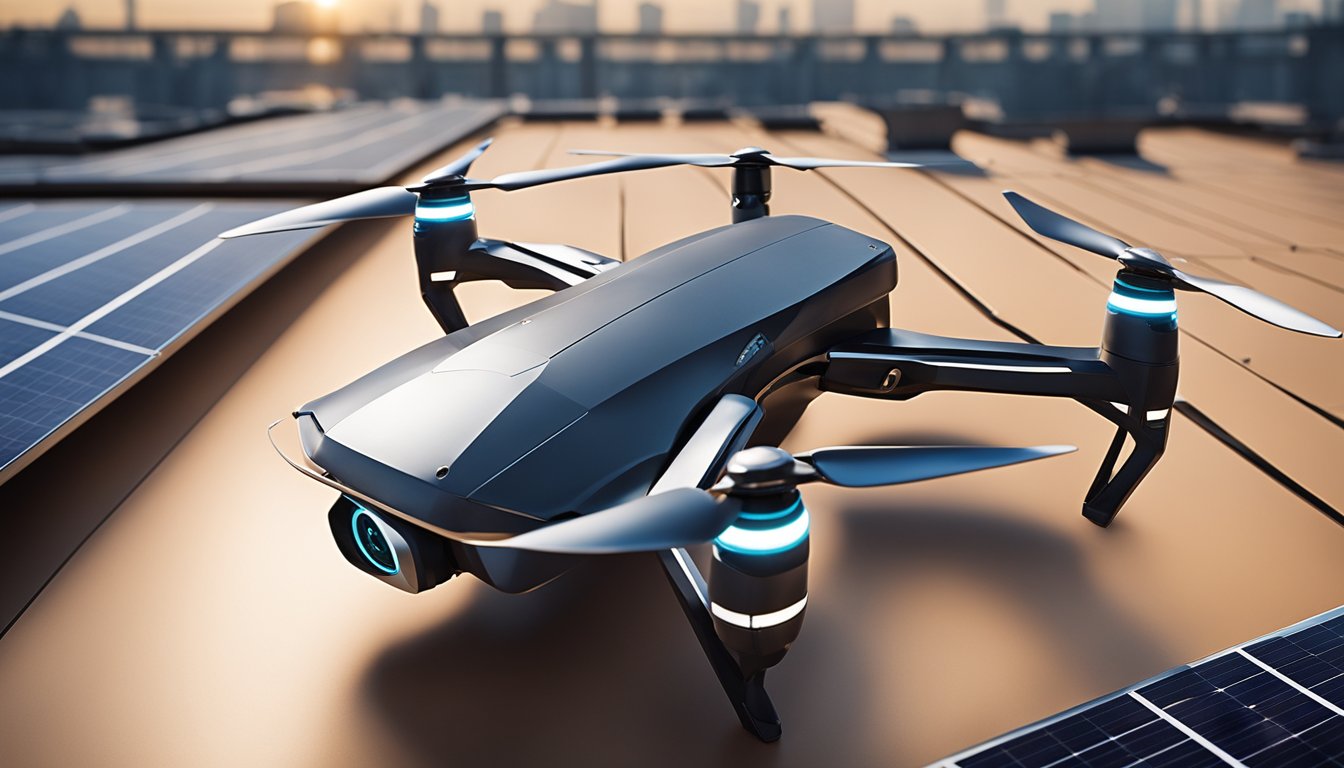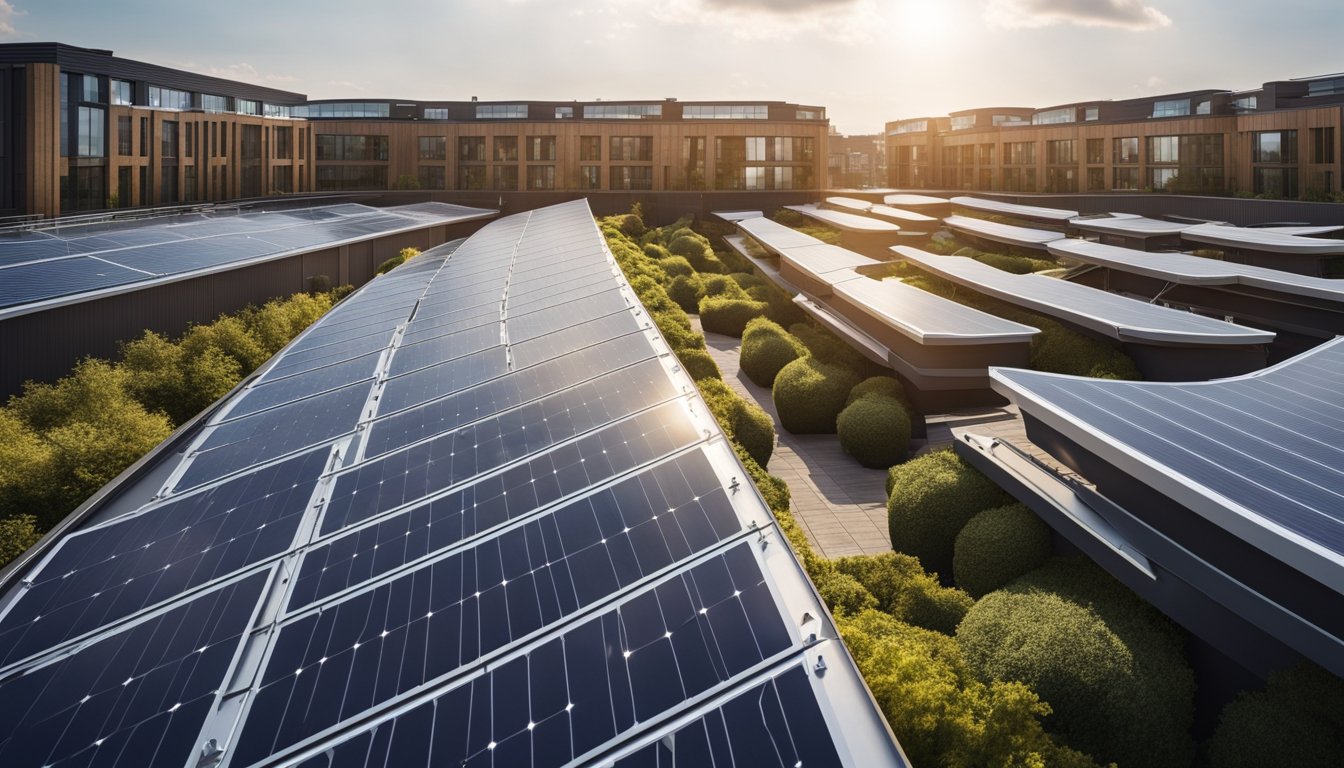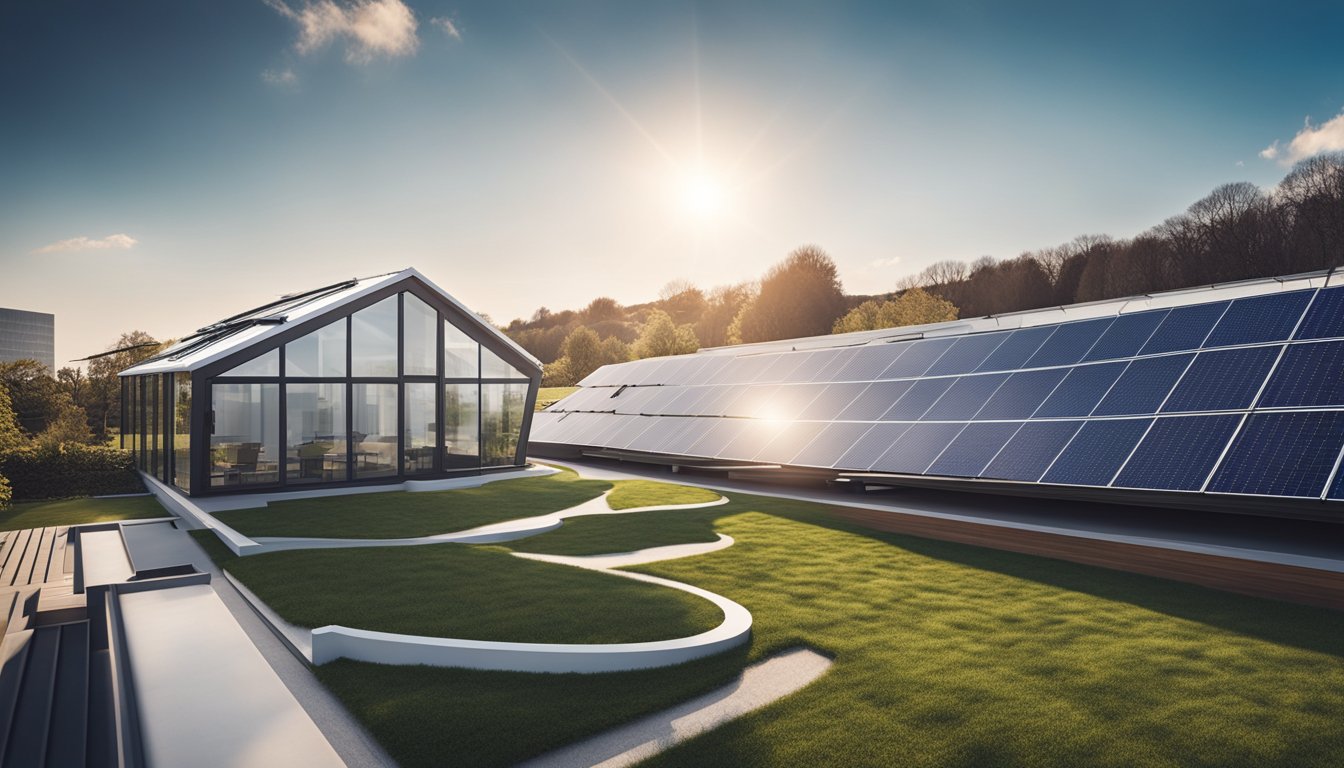Late updated: 25 Oct 2024 12:10
Written by: Oliver Bennett
Future-Proofing UK Roofs With Advanced Tech: Innovations in Resilient Roofing
In the ever-evolving landscape of construction and home improvement, the UK roofing sector stands on the brink of a revolutionary shift. By integrating advanced technologies, we can transform our roofs into powerhouses of sustainability and energy efficiency. These innovations not only reduce our dependence on traditional energy sources but also pave the way for smarter, more resilient housing amidst the challenges posed by climate change.

As we face an increasingly unpredictable climate, the importance of future-proofing our homes cannot be overstated. The incorporation of advanced technologies such as integrated solar panels and weather-resistant materials offers robust solutions to the environmental challenges we confront. These cutting-edge advancements enhance durability and efficiency, ensuring that our homes cater to the demands of a changing world while reducing energy costs.
Our journey toward creating resilient homes begins with understanding the critical role of roofing technologies in climate adaptation and sustainability. By embracing these innovations, we not only safeguard our homes but also lead the charge toward a greener, more sustainable future for the UK housing industry.
Key Takeaways
- Advanced technologies enhance sustainability and energy efficiency in UK roofs.
- Innovative solutions improve resilience against climate challenges.
- Future-proofing homes reduces dependence on traditional energy sources.
Innovative Roofing Technologies and Their Benefits
As the UK embraces modernisation and environmental sustainability, innovative roofing technologies are becoming critical in construction. These advancements not only enhance energy efficiency but also support sustainable practices and improve the overall comfort of buildings.
Solar Panel Integration and Solar Battery Storage
Integrating solar panels into roofing systems offers a renewable energy source, significantly reducing electricity bills for homeowners. By pairing solar panels with solar battery storage, surplus electricity generated during sunny days can be stored. This allows energy use during evenings or overcast days, ensuring a consistent energy supply.
Solar technologies contribute to increased property value and tax incentives while combating climate change. As technology advances, solar panels become more efficient, making this an attractive option for future-proof homes. Our adoption reduces dependency on traditional energy sources and promotes renewable energy utilisation.
Green Roofs and Rainwater Harvesting Systems
Green roofs add an eco-friendly layer of vegetation, providing thermal insulation and improving urban air quality. They minimise rainwater run-off, reducing flood risks and alleviating stormwater drainage systems. These roofs offer aesthetic appeal while supporting biodiversity, attracting wildlife and creating natural habitats.
By integrating rainwater harvesting systems, we capture and store rainwater for non-potable uses, conserving water resources. Combining green roofs with rainwater systems enhances sustainable construction, reducing environmental footprints and leading towards more sustainable urban development. This innovative approach supports regulatory compliance with environmental policies.
Improving Thermal Performance With Insulation and Materials
Improving thermal performance is essential to reduce energy consumption. The use of advanced insulation materials helps maintain a consistent indoor temperature, enhancing comfort and lowering heating and cooling costs.
New materials like reflective coatings and phase change materials adapt to temperature fluctuations, promoting energy efficiency. Such innovations facilitate sustainable construction by meeting stringent energy performance standards. These materials contribute to a building's energy-efficient profile without compromising structural integrity.
Keeping up with these technological advancements ensures our roofs are resilient, energy-efficient, and tailored to the demands of a changing climate. By embracing these innovations, we craft roofs that are not only functional but also environmentally friendly and economically beneficial for the future.
Adapting to Climate Change: Strategies for Resilience

As climate change intensifies, the need for resilient infrastructure becomes imperative. Effective adaptation strategies for roofs in the UK are crucial, focusing on flood risk assessment, sustainable cooling solutions, and supportive regulatory frameworks.
Assessment of Flood Risk and Implementation of Sustainable Drainage
Flooding poses significant risks to buildings, especially with increased frequency and intensity of heavy rainfall. Accurately assessing flood risk allows us to implement effective measures like sustainable urban drainage systems (SuDS). SuDS reduce surface water runoff, enhancing water absorption and storage.
Natural flood defences, such as green roofs, not only manage excess water but also boost biodiversity. Employing climate intelligence tools, we can predict and manage future flood threats, ensuring our infrastructure withstands these challenges. This approach not only mitigates flood damages but also reduces flood insurance premiums, making homes more affordable to protect.
Cooling Strategies to Combat Overheating and Improve Air Quality
Overheating in urban environments requires innovative cooling strategies. Passive cooling techniques can substantially reduce reliance on air conditioning. Options like reflective roofing materials and increased vegetation, such as rooftop gardens, help moderate temperatures and enhance air quality.
Sustainable cooling also involves the integration of renewable energy sources like solar panels, which lower energy costs and carbon footprints. These strategies contribute to more climate-resilient buildings, providing a healthier living environment. Importantly, they play a critical role in reducing heat islands in urban areas, supporting our health and overall well-being.
Regulatory and Financial Framework Supporting Roof Upgrades
Supportive policies are vital for incentivising roof adaptations. Current building regulations encourage the installation of energy-efficient and climate-resilient features. Financial assistance, such as the Renewable Heat Incentive (RHI), makes implementing advanced technologies more accessible.
These frameworks not only ease the financial burden of upgrades but also ensure compliance with the latest environmental standards. Government-backed schemes offer grants and loans, making eco-friendly projects viable for homeowners. Utilising these resources, we create durable, resilient roofs equipped to meet future climate challenges. It is essential to align our strategies with available support to maximise both environmental and financial benefits.
Frequently Asked Questions

In the ever-evolving landscape of roofing technology in the UK, numerous innovations are shaping the future of how we protect our homes. From enhancing longevity and sustainability to integrating smart technology, these advancements offer significant benefits.
What innovations are being implemented to improve the longevity of roofing materials in the UK?
Recent advancements have led to the development of self-healing materials and more durable roofing solutions. These innovations aim to minimise wear and extend the lifespan of roofs, reducing the need for frequent replacements.
How are technological advancements aiding in the sustainability of UK roofing systems?
Solar integration and the use of eco-friendly materials are at the forefront of sustainable roofing practices. By generating clean energy and utilising renewable resources, roofing systems contribute to reducing carbon footprints.
In what ways is smart technology being integrated into roof design to enhance performance over time?
Smart roofing incorporates sensors and automation to monitor conditions and adjust to environmental changes. These technologies improve maintenance efficiency and help preserve the structural integrity of roofs over time.
Can advanced roofing techniques mitigate the effects of severe weather conditions in the UK?
Yes, innovative designs and materials are being employed to withstand harsh weather, including high winds and heavy rain. These techniques help protect homes from damage and reduce maintenance costs associated with severe weather.
What are the best practices for ensuring UK roofs are equipped to handle future climate change impacts?
Proactive strategies include using adaptable materials and flexible designs to accommodate changing climate patterns. Regular inspections and updates ensure that roofing systems remain robust against future environmental challenges.
How does the use of modern insulation materials contribute to the energy efficiency of UK homes?
Advanced insulation materials enhance energy retention, reduce heat loss, and improve overall thermal comfort. By increasing energy efficiency, these materials not only lower utility bills but also contribute to reducing the environmental impact of residential buildings.
